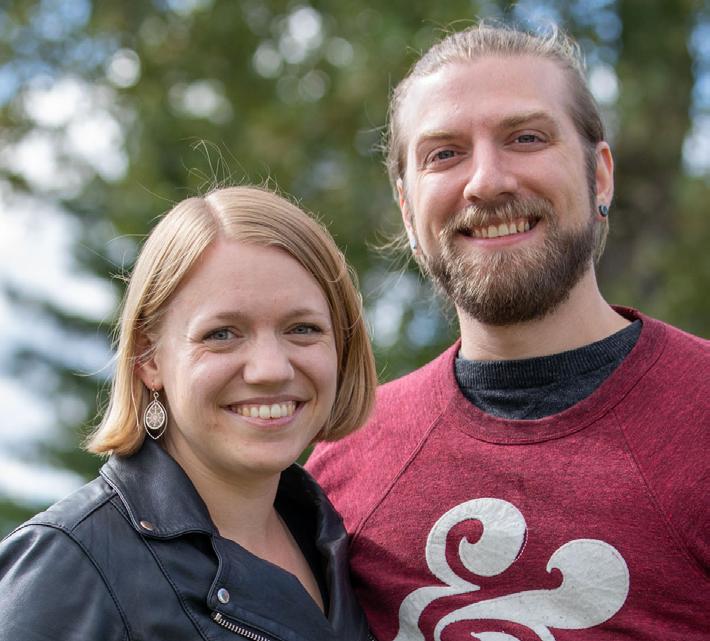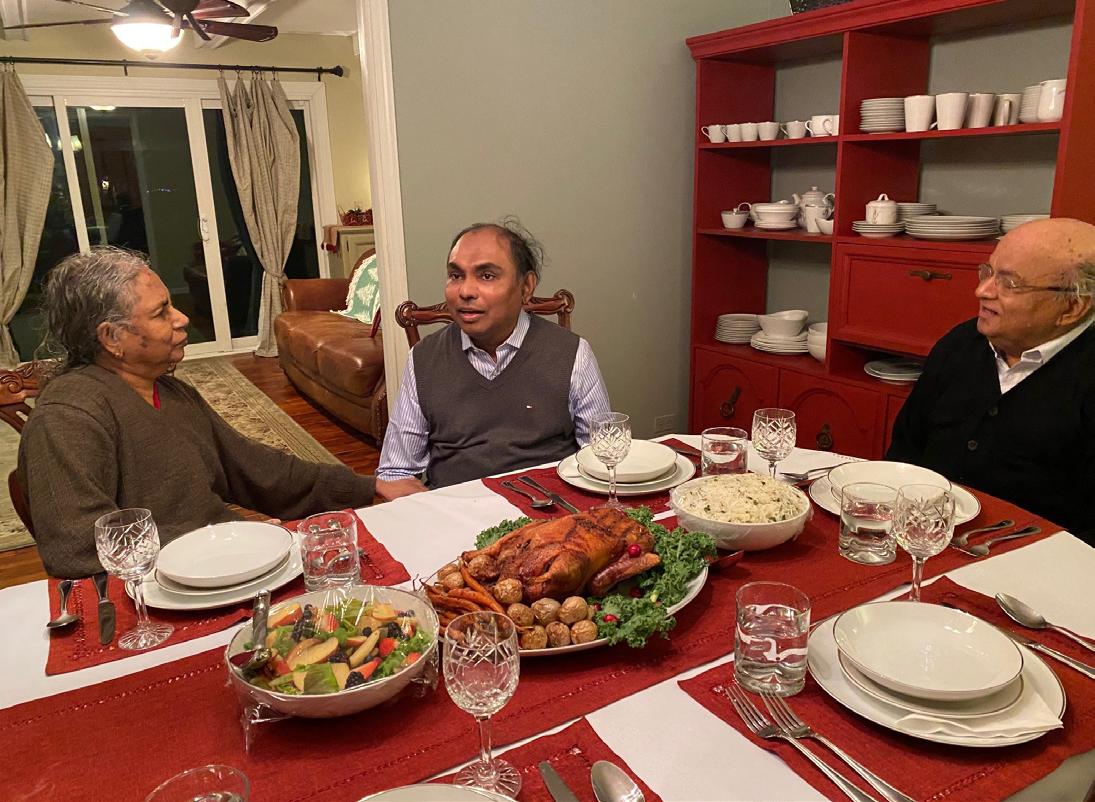LIFE LESSONS
Not All Pandemic Lessons Are Online Vijai Kuruppacherry
I was at work when my mom called me, her voice frantic over the phone. "Vinod has been yelling to go out to get Pepsi and now the police are here." Feeling my anxiety level rising, I listened to a barrage of statements that were barely comprehensible. I asked her to wait a bit and drove with my wife, Alma, to the Renew Wheaton Center apartments, where my parents and brother were staying. BROTHERLY CHALLENGES Vinod, my brother, is on the autistic spectrum. He lives part of the year in India with my parents, where he and they have their regular medical care, and he attends a school for people with special needs. They are permanent residents in the U.S., and when they come, they live with us. He comes to the STARS meetings on Sunday mornings and enjoys them. In 2020 they were in for a much longer stay during the year due to the pandemic, so they moved to a rented apartment at Renew Wheaton Center on Liberty Drive. Vinod turns fifty in April this year. When he first started exhibiting symptoms of his developmental disorder, no one knew what to make of it. He exhibited savant-like skills at an early age. He taught himself how to read and write in English around the same time. By the time he was four, he was always reading— magazines, newspapers, anything he could get hold of. Everyone in the family was proud of his accomplishments, until he started attending preschool. There his behavioral challenges led to the school asking my parents to remove him from enrollment. At the time in India, autism was not widely recognized or diagnosed except in highly specialized settings. Although the term was used to describe cases in which people exhibited social aloofness and self-absorption, the term "infantile autism" was first listed in the Diagnostic and Statistical Manual of Mental Disorders (DSM) in 1980. In the mid-1970s, my parents took Vinod to the Christian Medical College and Hospital (CMC) in Vellore, India, one of Asia's most celebrated hospitals. They could not understand how a child with such skills could also exhibit developmental delays. He was frequently loud and disruptive, especially in social settings. They diagnosed his condition as childhood schizophrenia.
Over time, his vocabulary decreased and was eventually reduced to familiar phrases with which he made sense to his family. These behavioral challenges continued into adulthood. He discontinued formal education at the age of five. He would be enrolled into a special needs school again, only at the age of twenty-eight. A NEW ROUTINE So, when my mother's frantic call came, disturbing thoughts played in my mind. When we reached their apartment, my dad let me know that Vinod had been yelling to be let out to buy a can of Pepsi, and a neighbor had called the police. The officer was courteous and spoke kindly to Vinod. This was not the first time the neighbors had reported the noise. Two times prior to this, the apartment office had called us to let us know that they had received complaints. We let them know that we were working on getting Vinod adapted to his new surroundings. The office manager told us that we needed to ensure that it did not keep happening. I was sure that this would be the last straw now that the police had been called. When we got there, the officer had left, and Vinod appeared to be calmer but still insisting on getting his soda. We tried reasoning with Vinod. We struck a deal with him that we would come by after work in the evening and take him out to McDonald's where he could get Pepsi from the drive-up window. He seemed to see the justice of this and agreed. We established a schedule for him to get his soda—Mondays, Thursdays, Fridays and the weekend. We would come daily to check on him and my parents. Our activities during this time involved helping keep house, getting virtual appointments with their U.S. doctors and getting their food. We took turns spending the night with them. Either one of our two kids, Alma or I would be present each night in case of an emergency.
7
















